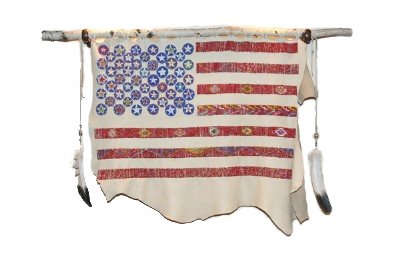Cleburne Times-Review Column for 28 May, 2006
“Greater love has no one than this, that he lay down his life for his friends.”
--John 15:13
There are three main holidays where we as a Nation celebrate those who wear or have worn their country’s uniform. On Armed Forces Day (May 20), we honor those who currently stand watch over our liberty and safety. On Veterans Day (November 11), formerly Armistice Day, we thank those who served their country in the past. But on the last Monday in May, we observe Memorial Day in recognition of those who never came home. John Alexander Logan, a former Congressman from Illinois who later served as a general in the Union Army, proclaimed the first Memorial Day as Commander in Chief of the Grand Army of the Republic on May 5, 1868. In his General Orders Number 11, he wrote, “Let us, then, at the time appointed gather around their sacred remains and garland the passionless mounds above them with the choicest flowers of spring-time; let us raise above them the dear old flag they saved from his honor; let us in this solemn presence renew our pledges to aid and assist those whom they have left among us a sacred charge upon a nation's gratitude, the soldier's and sailor's widow and orphan.” The Civil War, still our bloodiest conflict, left many to memorialize. It is hardly surprising then that the haunting refrain of “Taps,” also appeared as a result of that terrible conflagration, prepared by General Daniel Butterfield and his bugler, Oliver Wilcox Norton. Part of the unofficial lyrics to “Taps,” run, “Go to sleep, peaceful sleep, May the soldier or sailor, God keep. On the land or the deep, Safe in sleep.”
Decades later, when the awful engines of the modern world produced the horrors of scientific, technological butchery in World War One, John McCrae was moved to write, “In Flanders fields the poppies blow; Between the crosses, row on row; That mark our place; and in the sky; The larks, still bravely singing, fly; Scarce heard amid the guns below. We are the Dead. Short days ago; We lived, felt dawn, saw sunset glow, Loved and were loved, and now we lie; In Flanders fields.” To this day, in France and Belgium and the nations of the former British Empire, Remembrance Day is celebrated with veterans wearing poppies in their lapels and passing them out to the public.
So what, if anything, will you do to remember the fallen on this Memorial Day? In our current conflict, whether you support it or not, we the general public have not been called upon to endure any sacrifice, or indeed even any mild inconvenience, in support of the cause. Save only for those families who have sadly lost a loved one, most of us would never know a war was being fought half a world away, or that young men and women were dying nearly every day. There is a movement afoot to fix the date of Memorial Day, instead of allowing it to float for the convenience of a long weekend. Surely, we can make at least that much of a sacrifice? To give up a trip to the lake or mall to actually pause and remember those who were willing to put on a uniform, pick up a weapon, and interpose their bodies between us and our families and those who would kill or enslave us? Those who “gave the last full measure of devotion”?
The Iraq War is a source of great controversy and divisiveness in this country; that much is painfully obvious. Some who have lost children in the conflict, such as Cindy Sheehan, are passionately opposed to the fighting; others support the cause with equal fervor. Yet, beyond dispute, is the brutal undeniable fact that as of the moment I type these words, 2,459 American soldiers have died. So divided is the country, that even listing their names on television is controversial. Yet how will we remember them? How will we honor their sacrifice? Are we willing to give up anything, anything at all, to show them and their families that we appreciate them? Are the flags downtown enough? Do your children even know why they are flying? What will you tell them?
Shakespeare put these words in the mouth of Henry V: “This story shall the good man teach his son; And Crispin Crispian shall ne'er go by, From this day to the ending of the world, But we in it shall be remembered-We few, we happy few, we band of brothers; For he to-day that sheds his blood with me Shall be my brother; be he ne'er so vile, This day shall gentle his condition; And gentlemen in England now-a-bed Shall think themselves accurs'd they were not here, And hold their manhoods cheap whiles any speaks That fought with us upon Saint Crispin's day.”
Will we teach our sons? Will we remember?
Labels: Column


0 Comments:
Post a Comment
<< Home